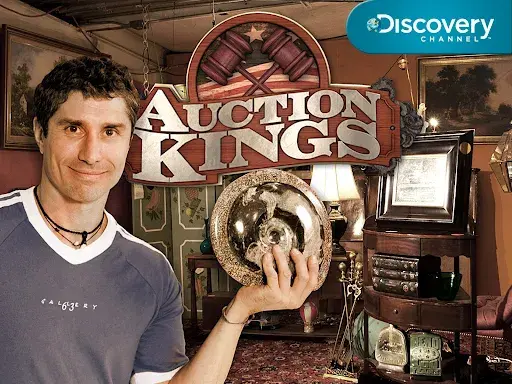How Did the GameStop Short Squeeze Affect Art Collectors?
In late January of 2021, an unlikely connection emerged between Reddit users, GameStop, and some of the biggest names on Wall Street. Steve Cohen and Kenneth Griffin, two of the art world’s wealthiest collectors, were affected by a newsmaking stock market short squeeze. Both billionaires have placed record-breaking bids at auction and boast extensive art collections.
What happened with the GameStop short squeeze, and how did it affect these famous collectors? Auction Daily investigates.

The GameStop Short Squeeze
Amateur stock traders recently noticed a pattern in GameStop’s stock prices. The numbers were going down for the video game retailer, partially due to the COVID-19 pandemic and a years-long push towards digital in the video game industry. Wall Street investors essentially bet that GameStop’s stock prices would continue going down. Hedge funds borrowed shares from brokers and immediately sold them, intending to buy the stocks back with a profit after the price fell.
A group of amateurs on Reddit decided to push GameStop’s stock prices in the opposite direction. This action is not unusual or illegal, but it more frequently involves professional power players. Investors traded over 175 million shares on January 25th. Within a few days, the price of GameStop stock rose from USD 17.25 to over $500 per share. Robinhood and other brokerages halted the buying of GameStop stock to prevent further losses. This move prompted bipartisan criticism and invited dozens of class action lawsuits.
Several major hedge funds lost billions during the GameStop short squeeze. Melvin Capital was the hardest hit, losing 53% of its investments by the end of January. Point72 Asset Management, headed by Steve Cohen, and Citadel LLC, headed by Kenneth Griffin, stepped in to stop the financial bleed.
Steve Cohen and Point72
Point72 Asset Management is an American hedge fund with investments in Melvin Capital. It contributed $750 million to stabilize Melvin during the GameStop short squeeze. Despite the rescue, Melvin’s losses will likely ripple out and affect other hedge funds on Wall Street.
Steve Cohen is the founder of Point72. With a net worth of over $14 billion, Cohen is no stranger to the high stakes of both the stock and art markets. He is the majority owner of the New York Mets and has amassed one of the most expensive private art collections in the world. Cohen owns works by Paul Gauguin, Vincent Van Gogh, Edvard Munch, and Willem de Kooning. In 2015, he bought Alberto Giacometti’s L’homme au doigt (1947) sculpture for $141.3 million at Christie’s. This set a record for the most expensive sculpture sold at auction. The Cohen collection is now valued at over $1 billion.
The New York Times reports that Twitter users leveled questions at Steve Cohen about how the recent GameStop losses will affect the New York Mets. “Why would one have anything to do with the other,” he stated in response. Citing personal threats against his family, Cohen later deactivated his account. He has not indicated if or how his recent losses will impact his art investments.

Kenneth Griffin and Citadel LLC
Citadel LLC is another financial services company involved in the GameStop short squeeze. The company contributed $2 billion to assist Melvin Capital in its hour of need. “Citadel Securities witnessed an extraordinary level of retail trading last week,” the company told Bloomberg. “At many times over the course of the week, the large brokerage firms depended upon our capabilities to handle the deluge of orders.”
Kenneth Griffin, the founder and majority owner of Citadel, is also one of the biggest names in the art world. The Chicago billionaire’s private art collection is reportedly valued at above $2 billion. Griffin regularly loans out works to museums, including the Art Institute of Chicago. Amid the COVID-19 pandemic, he privately purchased Jean-Michel Basquiat’s Boy and Dog in a Johnnypump for more than $100 million. Griffin also set the record for the most expensive private sale of art after a $500 million deal in late 2015. The Griffin collection includes works by Paul Cézanne, Jackson Pollock, and Njideka Akunyili Crosby.
Citadel manages over $30 billion in assets, and its hedge funds lost less than 1% of their investment in Melvin Capital. The company has yet to discuss the impact of the recent GameStop short squeeze, but analysts are starting to wonder whether Citadel actually turned a profit. Time will indicate any long-term impact on Griffin’s art spending.
GameStop, Collectors, and the Art Market
As Artnet News points out, “It’s unclear if the GameStop losses will affect [Cohen and Griffin’s] buying habits, as both have remained quite active in the art trade even with other financial distractions.”
However, the temporary halt on GameStop stock sales might not be the end of the story. The actions of small but organized amateur traders cast light on how stock market manipulation works. High-profile investors like Steve Cohen and Kenneth Griffin may now find themselves in a new kind of market.
Looking for more art world news? Auction Daily recently looked at how the post-Brexit art market is developing so far.












